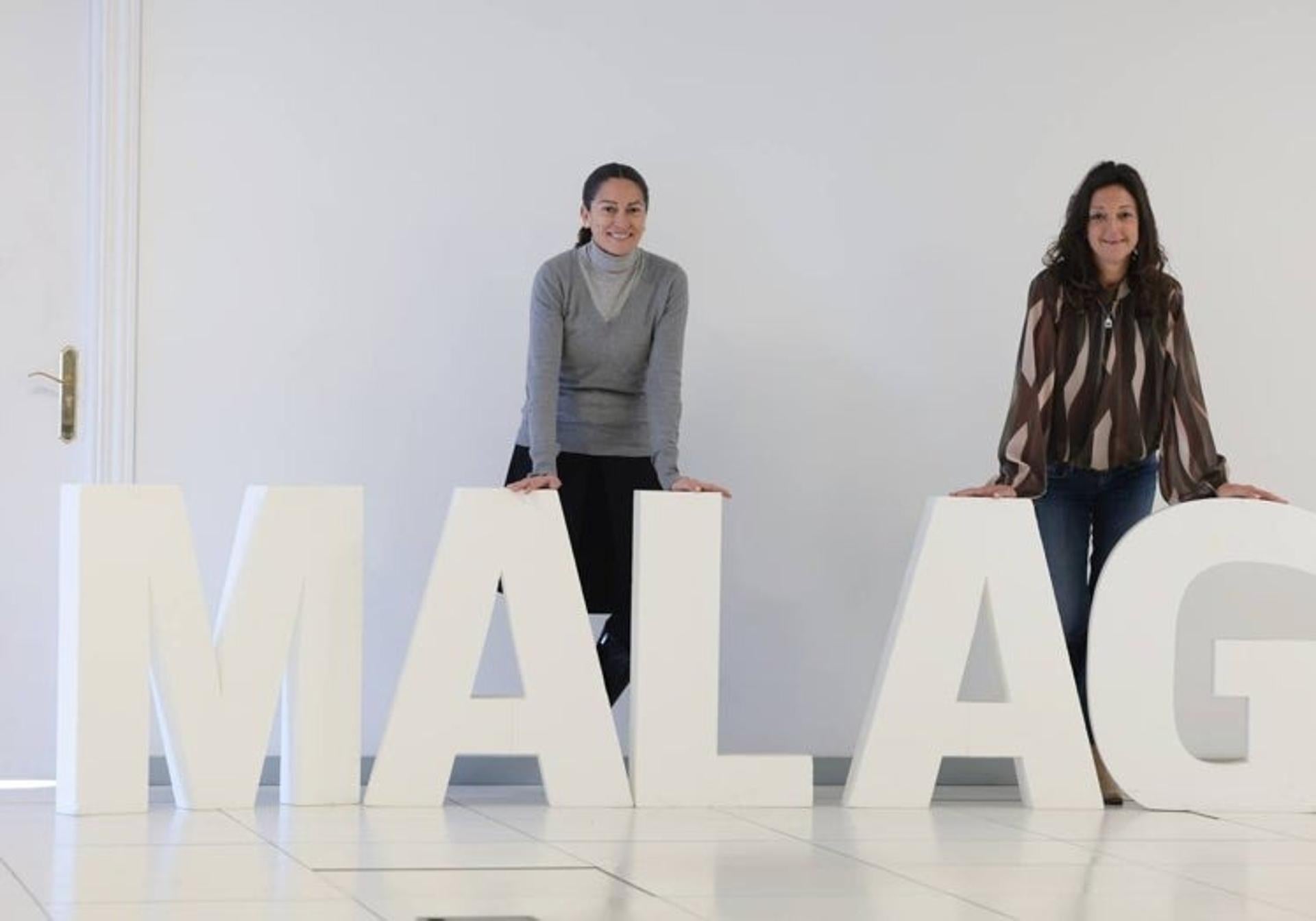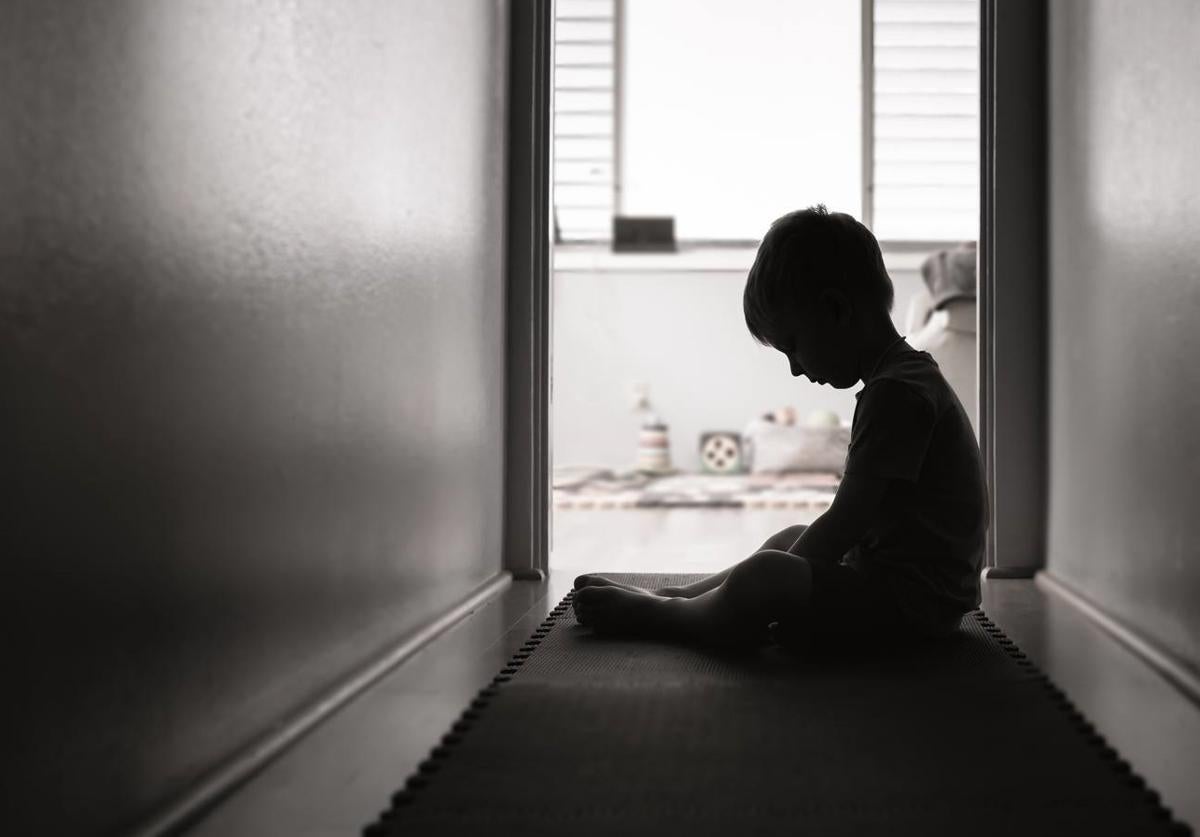'I play that game with Daddy - is that a bad thing?'
It takes an average of ten years for victims of child sexual abuse to verbalise what happened to them. The Malaga-based association Alas helps them and their families, even if they decide not to report the abuse
The Andalusian public prosecutor's office sounded the alarm in its latest annual report: sexual crimes committed by minors have increased considerably over the last year. According to its head, Ana Tárrega, the causes lie in easy access to pornography and early sexual relations. Additionally, there are the assaults on minors committed by adults generally from their close environment and sometimes very dear family members, a reality that is very difficult to accept and deal with.
Alas (wings in Spanish), created barely a year ago, is an association that offers comprehensive legal and psychological care to minors who are victims of sexual abuse and their families. The association offers help even if the victims decide not to report the abuse, because they will need psychological support regardless. In these few months they have already handled a ten cases, four boys and six girls aged between ten and 16, with their respective families, and they have four more in evaluation.
Carolina Macías, lawyer and vice-president of Alas, explains, "Parents are often slow to see what is happening because they think it's something that will not happen to them, although there are signs that should alert the family: changes in behaviour, drop in school performance, withdrawn children who suddenly look for excuses not to go out with their friends or socialise with a cousin or go to their aunt and uncle's house."
She recalled in particular a case in which a mother regretted that she had not noticed it earlier. She had seen her child playing with dolls and telling them: "Take off your clothes, sit down here, stand here, let me do this, let me do that." Her mother asked her: "What are you doing playing with those things, who do you play with at school? I'm going to talk to your teachers." And the girl said: "That's what I play with Daddy. Is that bad, Mum?" And the mother didn't believe her at first: "Go on, go on, stop this nonsense." Later, when she realised what was happening, she regretted not having paid attention to her daughter's testimony, but these situations are hard to process.

"There is no risk profile. The figure you least suspect could be the abuser. If it is a teacher, it is usually the one who is most loved by the group of children and adolescents"
Rocío Morales
In Alas they have projects to raise awareness and train parents and the health, police and legal sectors. "There is no risk profile. The figure you least suspect could be the abuser. If it is an adult to a minor, they usually have a friendly approach. If it is a teacher, it is usually the one who is most loved by the group of children and adolescents," explained Rocío Morales, president of the Alas association.
Disgust, shame and guilt
It is important to bear in mind that it takes an average of ten years before a victim of child sexual abuse is able to verbalise what happened to them. On a psychological level it is very difficult for them because they feel disgust, shame and guilt. They have a trauma that they can become aware of years after the abuse, when they are ten or 12 years old, or even later when they are already adults. Of course there are also those who had the misfortune of telling their story when they were young and not being believed at the time.
As of 2021, with the Law for the Integral Protection of Children and Adolescents, the statute of limitations has been extended and the time within which a complaint must be filed has been extended. Now it will not expire until they are 40 years old, and in the most serious assaults, even later. In cases prior to 2021, it depends on when the last abuse they can remember was, how serious it was and what the after-effects were.
The foundations of the association was a case of a 12-year-old girl and a 14-year-old boy who were going out together but then non-consensual sexual acts happened, which the girl decided to report
The foundations of the association was a case of a 12-year-old girl and a 14-year-old boy who were going out together. Non-consensual sexually acts took place, including penetration and other sexual practices, and the girl verbalised and reported it some time later.
The family found that the girl had to testify more than once: first at the police station and then at the prosecutor's office, instead of doing it once and recording it as pre-constituted evidence. There were several mistakes, including the police calling minors who had witnessed certain conversations and when they received the call, they already knew that the victim had reported. There was a lack of counselling, a lack of preparation of staff, and they even had to find and pay for a psychologist themselves.
This coincided with some cases in nearby schools at the same time, where the established protocol was not being followed. One of the objectives of the Alas association is that neither the victims of sexual violence nor the families have to go through the process of re-victimisation over and over again.
The family of the 12-year-old girl even had to move to another town. Despite having a restraining order, unfortunately, it is often the victims who have to move, because the further away they are, the more protected they feel. "The case ended with the abuser being convicted, which was an impressive empowerment for the girl," said Carolina Macías.
Assault between minors can be difficult to detect. There is a lack of awareness from both the abuser and the victim that this is sexual violence
These assaults between minors can be difficult to detect. There is a lack of awareness from both the aggressor and the victim that this is sexual violence.
Education is needed from an early age to know what healthy relationships are like and what they can and can't do.
"With such premature sexualisation and the consumption of porn from a very early age, many adolescents normalise behaviour that is not normal," said Macías.
There are girls who allow certain things in sexual relations because they believe it is normal and they have been told that it is 'the right thing to do', even if they perhaps don't like it or feel comfortable doing it. The boy potentially doesn't even realise that he is raping her, because they have normalised what they see in porn and they think it's what they have to do with their partner.
In the cases Alas has handled so far, there are six minors who have suffered abuse from adults - the other four cases are between minors. There are 12-year-old children who abuse six-year-olds by imitating pornography videos, there are also abusive relationships between couples.
These are complex situations and moral judgement is very varied. So far three minors have been sentenced, and under the current law they are sentenced to socio-educational programmes. Not all of them will go to a detention centre, they can instead go through a probation scheme and attend workshops, because the law for minors aims to rehabilitate them through their sentences.
"What 'heals' the victim is the sentence, especially if it is a sentence of conformity, which is when there is no trial because the accused directly acknowledges the facts. In the three cases we have had this has been the case"
Carolina Macías
For Carolina Macías, "what 'heals' the victim is the sentence, especially if it is one of conformity, which is when there is no trial because the accused directly acknowledges the facts. This empowers them a lot and in the three cases we have had this has been the case".
In cases between minors, proof of consent is very important, even if at the time they did not say they did not want to do it. There are psychological reports that detect the credibility of the testimony, the after-effects and whether or not there has been sexual violence.
Finally, it is the judges who, with the provided evidence, determine whether or not there was consent.
The child aggressors themselves start to become aware of what they have done when they receive the complaint. Their initial reaction is usually: "She wanted to, she didn't say no."
"But as the process progresses, which has nothing to do with the usual adult cases, you can't imagine how many minors start to think, 'Oh my God, what have I done'," said Macías. And when they receive sex education, participate in awareness campaigns and listen to testimonies of victims, they realise that what they were doing was not right.
Increasingly violent porn
"These cases have increased by almost 400 per cent in the last few years. 87 per cent of children between the ages of eight and 11 have seen porn online. Sex education is scarce, therefore children are informed through social media and increasingly violent porn," said Morales.
Girls are objectified from a very young age in media, like reggaeton. And on TikTok, there are six and seven-year-olds making hypersexualised videos, dressed and made up as women. This also means that the minors themselves do not identify many things as child sexual abuse.
Children and adolescents need to be clear about what they can and can't do, that their body is theirs and that they have the right to say what they do and don't want to do, and they need to be aware that there are limits that cannot be exceeded without express consent.
"A lot of cases slip through the cracks. At the end of a conference or a workshop, someone always comes to ask you questions and realises that what happened to them a long time ago was sexual violence. How many children are keeping secrets, because it is always a secret: 'Don't tell anyone, this is between you and me'. How many young children have not yet developed their personality, nor their awareness that they are experiencing sexual violence, often from someone they adore," said Carolina Macías.
Volunteers working selflessly
Those who work in Alas are volunteers who do it selflessly. At the moment they have a space provided by the Diputación in La Noria in Malaga and another, also provided, in Benalmádena. They have a 24-hour helpline (642 50 75 75 54) and can also be contacted through their Instagram @alasasociacion. The association can provide support in English, Spanish, Italian, German and French.
Up until now there was the Márgenes y Vínculos foundation, a non-profit organisation dependent on the regional government, which deals with cases of child sexual violence in court, as long as the forensic report determines that it generated after-effects. The problem is that in order to go to them the case has to go to court, whereas in Alas victims are cared for from the first minute, even if they decide not to report the abuse.
The family may prefer not to report it, for example if it was by a brother or sister, but that minor is going to need help even if it goes unreported. And, on the other hand, you can't keep a child waiting to provide psychological support.



Comentar es una ventaja exclusiva para registrados
¿Ya eres registrado?
Inicia sesiónNecesitas ser suscriptor para poder votar.